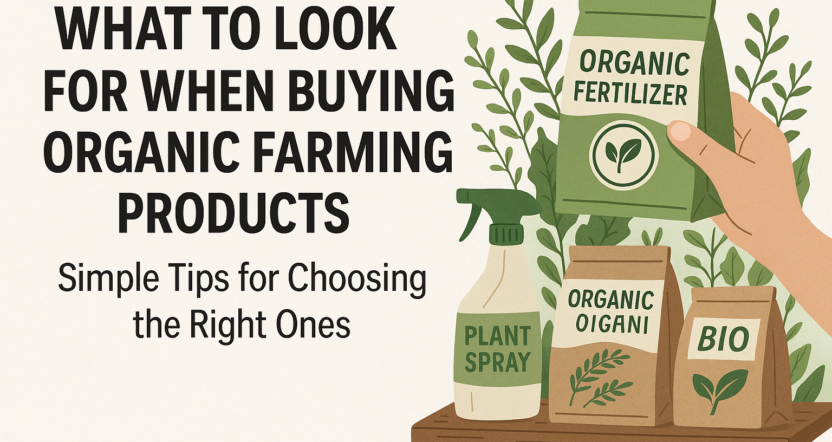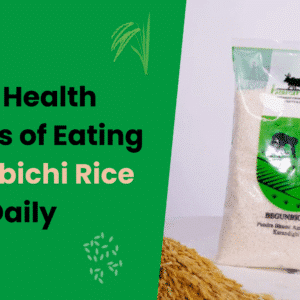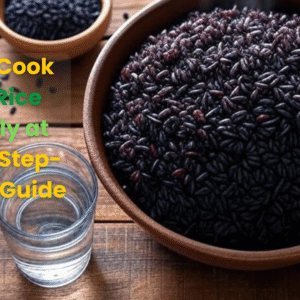Table of Contents
Introduction
Organic farming is a smart way to grow food. It is safe for nature and people. It uses natural items, not chemicals. But buying good organic farming products can be tricky. Some products may say “organic” but are not. This blog will help you choose the right products. We will talk about what to check before you buy. This way, you can grow safe food and protect the soil.
1. Check the Organic Certification Label
The first thing to check is the label. Look for an organic certification. This shows the product is truly organic. In India, you can check for the India Organic logo. Other labels are USDA Organic, Jaivik Bharat, and PGS India.
These labels mean the product follows organic rules. No fake chemicals or bad stuff. Always look for the logo on the pack. If there is no logo, be careful.
Example: If you’re buying organic rice, check if it has the right label.
Internal link idea: Link this to your Organic Rice product page: “Check our certified organic rice collection for trusted quality.”
2. Understand the Product Ingredients
Related Keywords: natural ingredients, safe for soil, chemical-free farming
Look at what the product is made of. Read the ingredient list. If it has names you don’t know, it may not be natural. Good organic farming products use safe and natural things like:
- Neem oil
- Cow dung
- Compost
- Vermicompost
- Plant-based liquids
Avoid products with strange chemical names. They may harm your soil and crops. Organic farming needs care and love for nature. Natural things help keep the soil healthy.
Tip: Natural fertilizers help crops grow better and taste better too.
3. Pick the Right Product for Your Crop
Related Keywords: crop-specific products, natural plant food
Not all products work for every crop. Some are good for leafy greens. Others are made for fruits or grains. So always check if the product suits your plant or crop.
If you’re growing organic rice, choose fertilizers made for paddy fields. They help with root growth, water balance, and protect from pests. Ask the seller if you’re unsure.
Also, check for instructions. It should say how much to use and when to use it.
Example: “Use 100 ml of neem oil per 10 liters of water for pest control on vegetables.”
Internal link idea: Guide your readers to your Organic Rice product page: “See how our organic rice products support healthy paddy growth.”
4. Look for Eco-Friendly Packaging
Related Keywords: biodegradable packaging, safe farming tools
Good organic products also care about the earth. So, check the packaging. Is it eco-friendly? Can you reuse or recycle it? Some packaging is made from paper or plant material. These are better for the earth.
Plastic bags and bottles harm the soil and water. Try to buy products with smart, clean packaging.
Tip: You are not just growing food, you are helping the Earth stay clean.
Also, check the expiry date. Organic items can go bad faster than chemical ones. Use fresh products for better results.
5. Read Reviews and Ask for Recommendations
Related Keywords: trusted organic brands, customer reviews, farm product ratings
Before you buy anything, check what others are saying. Read reviews online. Ask friends or local farmers what they use. Some brands are better than others. Trusted brands follow rules, test their products, and use clean ingredients.
Ask questions like:
- Did the product work well?
- Was it easy to use?
- Did it harm the plants or soil?
A little research can help you save money and time. And it keeps your farm safe.
6. Choose Products from Trusted Sellers
Related Keywords: organic farming shop, reliable supplier
Not all sellers are honest. Some mix chemicals and sell them as organic. Always buy from trusted shops. These shops get their products tested and offer quality. You can also buy from local organic farming groups or online stores with reviews and certification.
Look for:
- Clear contact details
- Return policy
- Support for questions
- Clear product info
Suggestion: If you are looking for quality organic farming products, start with simple items like organic rice and neem-based pest sprays.
Also, check if they offer customer support. A good seller will always answer your doubts.
Sure! Here are 5 additional subheadings with unique content written in the same simple and human-friendly style. These sections continue to educate readers and also provide more opportunities to use your focus keyword and related keywords naturally.
7. Know the Difference Between Organic and Natural Products
Related Keywords: organic vs natural, real organic farming
Many people get confused between “organic” and “natural.” They are not the same. A product that says natural may not follow strict rules. But organic farming products are checked and certified.
Always remember:
- Organic = tested and certified
- Natural = may not be certified
Don’t fall for smart words. Always trust the label, not just the name.
8. Buy in Small Quantities First
Related Keywords: test before buying, try small pack
If you are trying a new product, don’t buy a big pack. Start small. See how it works on your soil and plants. Some crops like different types of fertilizers. Others may react differently.
Buying in small amounts helps you:
- Save money
- Test the result
- Avoid waste
Later, you can buy more if it works well.
9. Look for Multi-Purpose Products
Related Keywords: cost-effective farming, all-in-one solution
Some organic farming products can be used for many things. Like a compost that also works as a soil booster. Or a pest spray that also keeps the leaves shiny.
These multi-use products save money and time. And you don’t have to carry too many things to the farm or garden.
Example: Neem oil can be used for pest control, leaf shine, and seed treatment.
10. Understand the Shelf Life of Organic Products
Related Keywords: expiry date, product freshness, organic care tips
Organic items are natural. So they don’t stay good forever. Always check the expiry date. Some products spoil in heat or when not stored well.
Tips to keep your products fresh:
- Store in a cool, dry place
- Keep them sealed
- Do not mix with chemical products
Using fresh products means better results and healthier plants.
11. Support Local Organic Farmers and Makers
Related Keywords: local organic brands, community farming
When you buy from local organic farmers or small makers, you help your community. Local products are often fresher. They may also be cheaper than big brands.
You can visit nearby farms or small stores. Talk to them. Ask how they make the product. Many local sellers also grow their own ingredients.
Tip: Buying local also reduces transport pollution and helps your area grow.
Let me know if you’d like these additions included in a final downloadable or WordPress-ready version with formatting and internal links.
Conclusion
Buying good organic farming products is not hard. You just need to be careful. Always check the label, ingredients, and reviews. Pick the right product for your crop. Use safe, natural items that protect the soil and help plants grow strong.
When you choose the right products, your farm becomes better. Your food is safer. And your land stays healthy for a long time. Start small and grow your farm with love and care.
Explore our Organic Rice products to begin your organic journey today!






